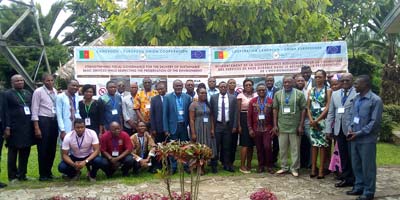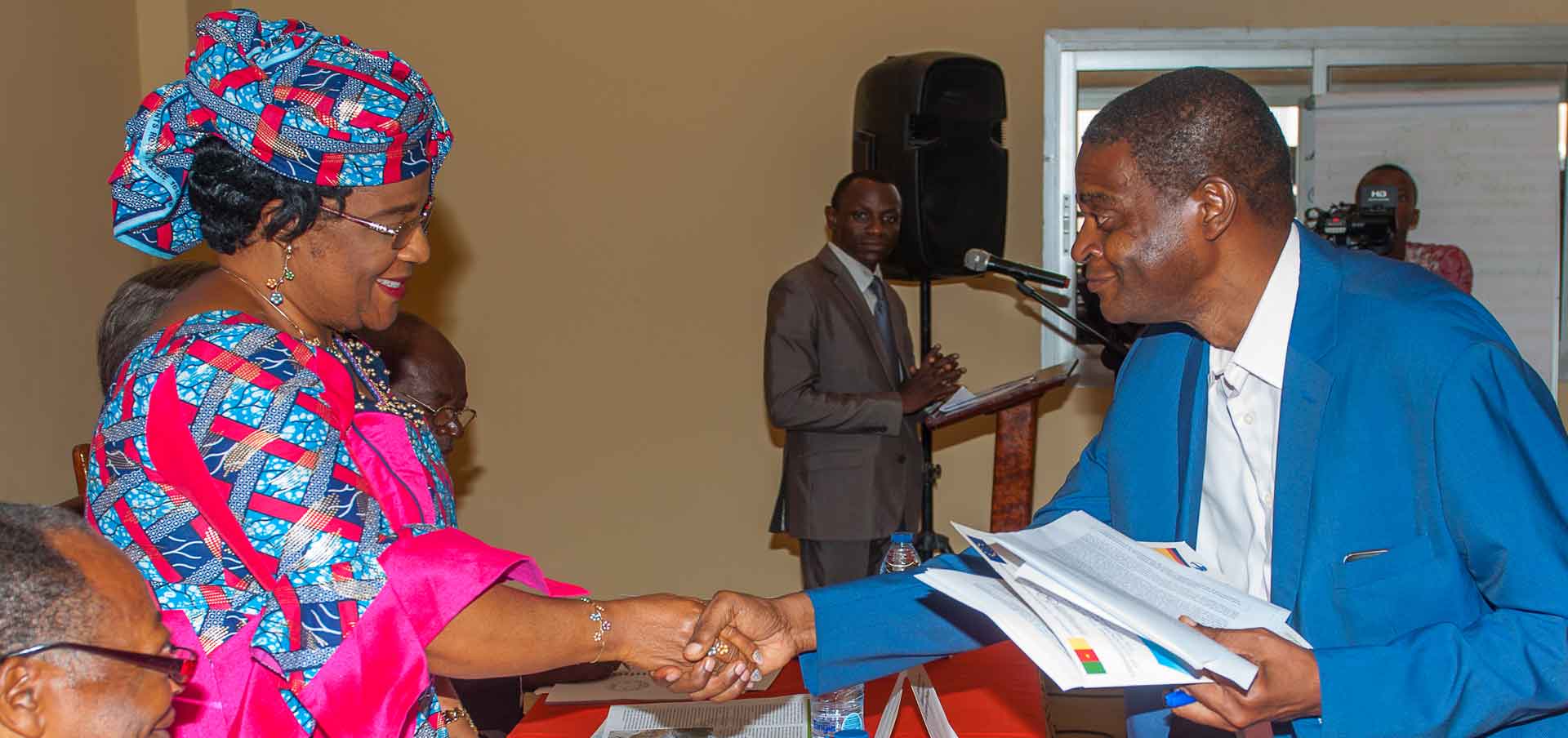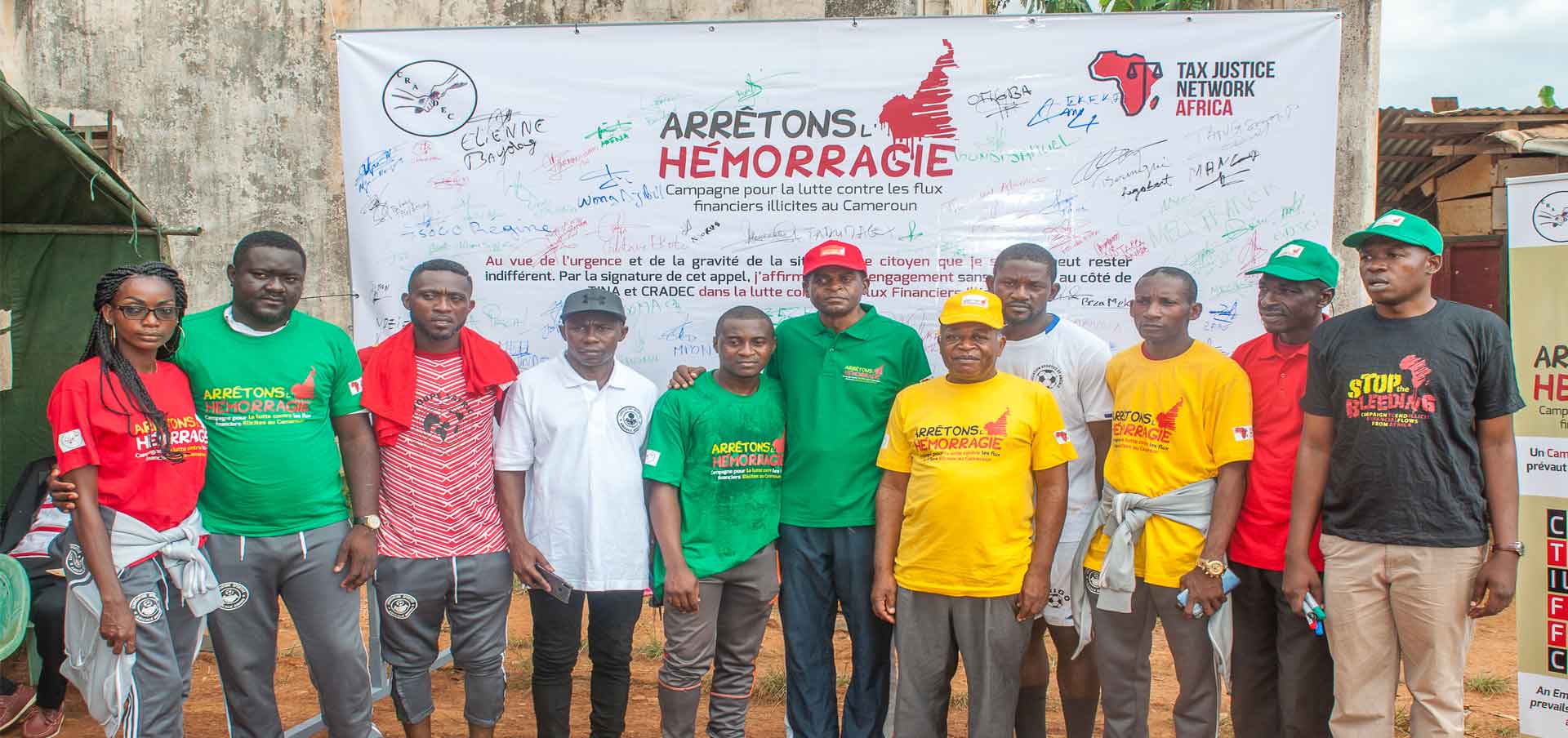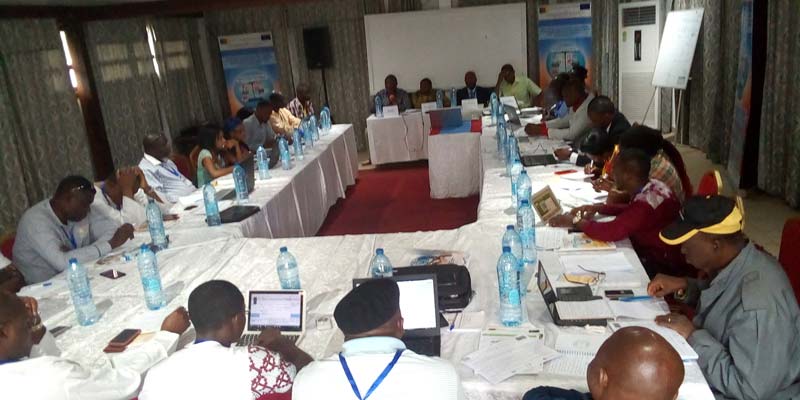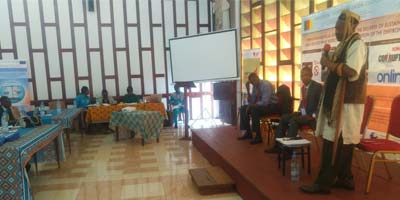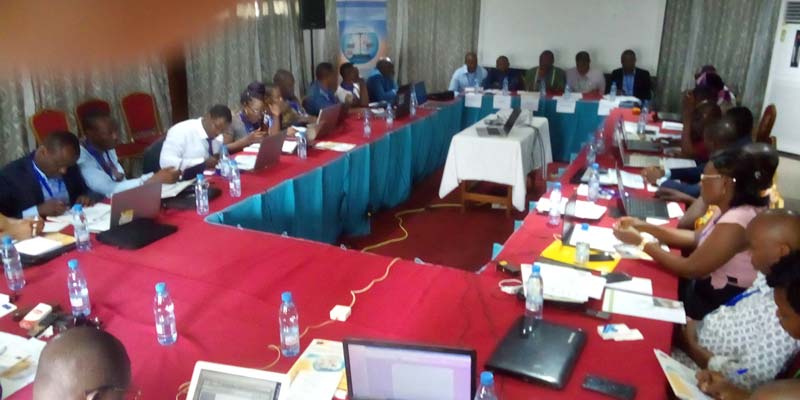I. Background and Justification
The seventeen Sustainable Development Goals (SDGs) were adopted by the UN in September 2015 as part of the 2030 agenda. This agenda defines the 169 targets, common to all committed States, to be achieved by 2030. They meet the following general objectives: to eradicate poverty in all its forms and in all countries, to protect the planet and to guarantee prosperity for all.
With the Sustainable Development Goals (SDGs), our country is committed to "leaving no one behind" in its march towards emergence. As such, the President of the Republic, His Excellency Paul BIYA, in his investiture speech of November 6, 2018, invited all Cameroonians to make emergence a national cause by declaring: "the objective of emergence must be set up as a great national cause which mobilizes all of our fellow citizens in order to make Cameroon a modern and socially advanced country”. To do so, Cameroon now has a new reference framework for its development action over the next decade, namely the National Development Strategy (NDS) 2020-2030. The latter outlines the guidelines that should guide development efforts to achieve the objectives set in Vision 2035.
Paragraph 378 of the SDN states that “emphasis will be placed on the increased digitization of citizen participation within the framework of “Open government”. Also, we propose the establishment of a platform, available on the internet, relating to the monitoring of public contracts in Cameroon. Indeed, information on public procurement is not always very accessible to the general public. In many "modern and socially advanced" countries, the opening of public data through open data is part of a movement for access to information and a public policy considering public data as a common good whose dissemination is of general interest. This availability of information allows the citizen to better appropriate and become more involved in the management of the city. In addition, starting from this principle, it is easier for associations, NGOs or even citizens to visualize public action in terms of public procurement. In a context of accelerated implementation of decentralization, the measure constitutes an opportunity for decentralized local authorities.
This platform, as specified in paragraph 432 of the SDN, in the area of procurement, will help to further guarantee free competition, transparency throughout the process and prevent corruption. The opening and availability of data on the website will concern all the stages of the award of contracts, namely: (i) the planning of the contract, (ii) its launch (call for tenders), (iii) the process of attribution, (iv) contracting and (v) execution. The reusability of raw data will enable citizens, civil society and the media to develop accessible and detailed analyzes of the efficiency, equity and integrity of the public procurement system. The citizen could help identify ambiguous contracts, a source of suspicion and provide information from the field on the quality, effectiveness and durability of the products produced in his community through the website. The exchange forum on the platform will allow the administration to clarify various observations reported by the citizen.
Like many countries around the world, the platform will rely on and respect the Open Procurement Data Standard (OCDS) proposed by the Open Contracting Partnership (OCP). OCDS is an open standard for structuring and publishing open data covering all stages of the procurement process, from planning to implementation. It enables the disclosure of data and documents at all stages by defining a common data model. It was created to support organizations in improving the transparency of public procurement and to enable deeper analysis of public procurement data by a wider range of users.
II. About the action
The project "Strengthening of Budgetary Governance for the Provision of Sustainable Basic Services in Respect for the Preservation of the Environment" responds to the objective of the strategic plan of the Cameroon-European Union cooperation to support the organizations of society Cameroonian civil society in their efforts to contribute to inclusive and sustainable growth in Cameroon. The life of the project is four (4) years and the implementation started in March 2021.
In the context of the implementation of the SDGs, the main objective of the project is to contribute to the strengthening of budgetary governance for an improvement in the effectiveness and efficiency of public policies (Areas of financing the economy; and mining industries) as well as the access of populations to quality information (accurate, understandable, exhaustive and complete) in the context of the implementation of the Sustainable Development Goals (SDGs).
More specifically, these are:
(i) Fight against illicit financial flows;
(ii) Strengthen the public procurement system;
(iii) Promote the implementation of the principle of environmental and social responsibility in mining projects in Cameroon, and
(iv) Communicate and make visible the activities and results of the action on good budgetary governance in connection with the themes and related sectors of the action through messages of information, mobilization and commitment.
The expected results are:
• Increased domestic budgetary resources;
• A more effective and efficient public procurement system for the provision of quality basic services;
• An improved and sustainable standard of living for populations living near mining sites and the whole country;
• The effects and impacts of the action on fiscal governance in Cameroon are amplified.
To achieve the result relating to the strengthening of transparency in the public procurement system, there are plans to design and develop a virtual platform following the standard of open data at all stages.
III. Main objective of the consultation
The main objective of this project is to set up, in collaboration with the existing public procurement system, a platform for monitoring public contracts in Cameroon.
a. Specific objectives
• Structure the data relating to the monitoring of public contracts in the OCDS format;
• Design and develop the platform, web application;
• Publish the data available on the platform and open it to the general public.
b. Intervention methodology
OCDS is an open standard for structuring and publishing open data covering all stages of the procurement process, from planning to implementation. It was designed with a focus on public procurement of goods, works and services, but the standard can be extended to cover other contexts. Extensions for Public Private Partnerships (PPP) and extractive concessions are under development.
To carry out the project, the steps below are important milestones:
• Define the main users and use cases of the OCDS project;
• Identify data and documents that will be released from the procurement process;
• Map the data identified on the essential components of the OCDS standard;
• Design the database that will serve as the basis for the web application, platform;
• Design and develop the web application;
• Publish data in the form of instances and archives in JSON format, as recommended by the OCDS;
• Check the validity of data according to the OCDS format through the interface provided by the Open Contracting Partnership (OCP);
• Publish the data on the platform;
• Encourage, popularize (face-to-face and/or remotely) and facilitate the use of data.
IV. Deliverables
At the end of the process, the platform will be available online with the data that will have been collected on different public markets. The application will have two main components, namely the front end (visible to Internet users) and back end (only accessible by administrators). The back end will be accessible with a username and password. In this interface, information relating to the procurement process will be entered while respecting the OCDS format. As for the front end, it will allow users to download different data in JSON and/or CSV format that can be used in third-party applications. In addition, various tables, statistics and graphs will allow citizens to get a better idea of public procurement. In addition, an exchange forum will offer citizens the opportunity to share their opinions and/or findings on the performance of public contracts. The administrations concerned will also be able to interact with citizens.
V. Mission team
The process of setting up the platform will involve some public administrations, civil society organizations, the media, citizens… and a team of dedicated experts. After the platform goes live, a smaller team will be in charge of maintaining and updating it.
VI. Duration
The process of setting up the virtual platform application is three (3) months.
VII. Consultation eligibility criteria
The Conceptualization of the Open Contracting platform for the monitoring of public contracts in Cameroon is open to consultants with proven expertise in the development of the web platform and in particular and fulfilling the following criteria:
• Be of Cameroonian nationality;
• Hold a higher diploma (Bac+4) in web development, software engineering or similar or equivalent diploma;
• Have a minimum of 5 years' experience in the field of web development and construction of digital platforms;
• Have a mastery of programmatic languages: Javascript, HTML, CSS, PHP, Dreamweaver, XML, ASP…,
• Knowledge of SEO, webmarketing/webdesign: Illustrator, Photoshop…,
• Perfect use of the language used on the site.
• Have good report writing skills;
• Have teamwork skills and be able to work under pressure.
• Have the ability to collaborate with all development stakeholders (civil society organizations, the media, citizens and in particular public administrations in charge of public procurement issues.
VIII. Files constitution
Each application file must contain the following items or documents:
• Cover letter ;
• Consultant's CV, updated summary;
• Copy of the highest diploma;
• Technical proposition ;
• A financial proposal;
• An up-to-date tax file (taxpayer card and certificate of non-royalty).
NB: Applications must be sent via Email to This email address is being protected from spambots. You need JavaScript enabled to view it. ; This email address is being protected from spambots. You need JavaScript enabled to view it. with a copy to This email address is being protected from spambots. You need JavaScript enabled to view it. and This email address is being protected from spambots. You need JavaScript enabled to view it. , no later than February 24, 2022.




